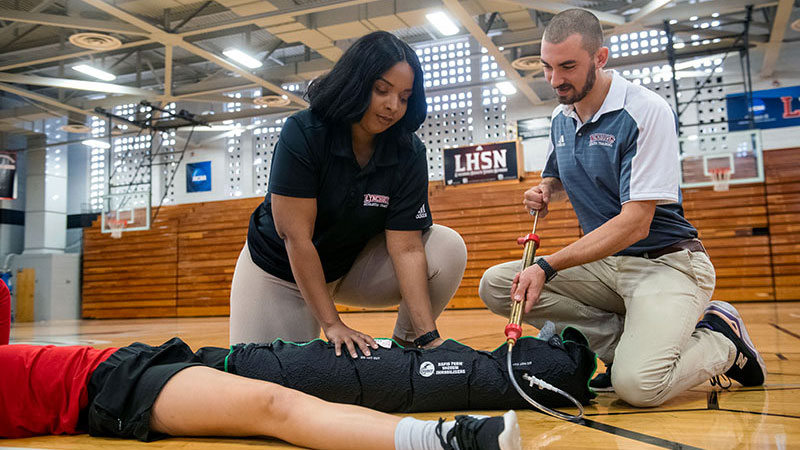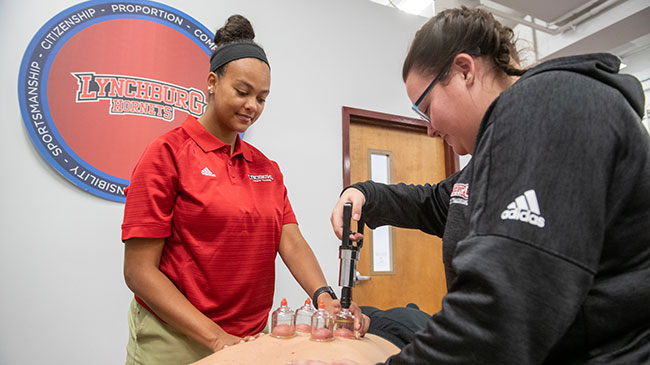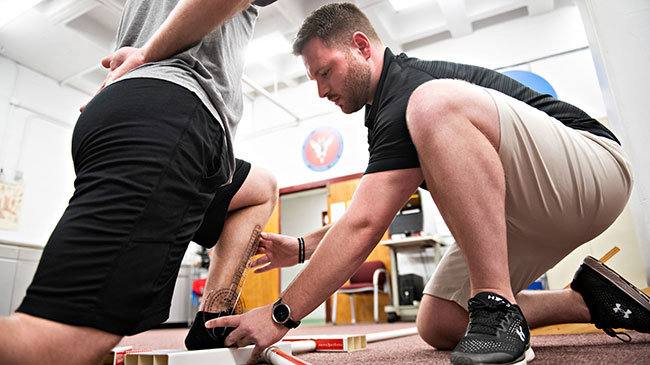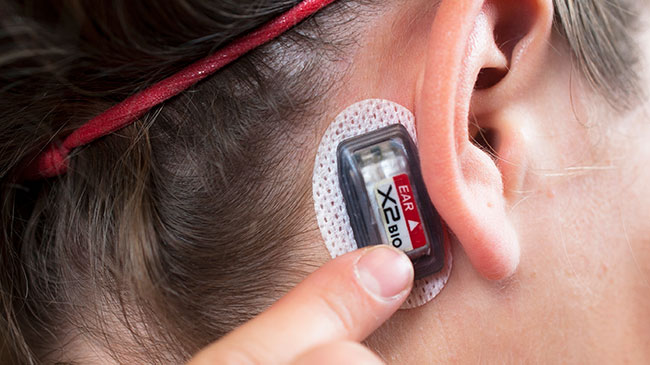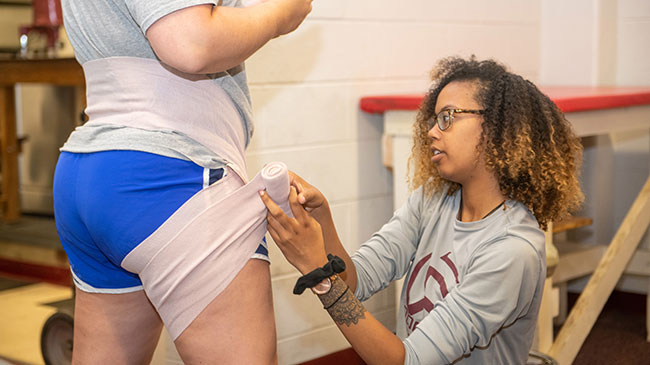The University of Lynchburg’s Master of Science in Athletic Training program is an excellent choice for those who are passionate about health care and helping athletes and individuals who are physically active to perform at the highest levels. The MSAT provides you with the skills, knowledge, and experience you need to become a successful professional in the athletic training field.
Lynchburg’s MSAT program combines classes, hands-on experiences, and clinical rotations, enabling you to apply both theoretical and practical athletic training skills. You’ll work with Lynchburg’s NCAA Division III athletes and also athletes at high schools, colleges, professional sports, and non-traditional settings, giving you valuable, real-world experience in keeping people healthy and injury-free. The program also gives you a foundation in evidence-based medicine, helping you develop your skills to be an athletic trainer.
Upon completion of the program, you’ll be well-prepared for the Board of Certification examination, which is a requirement for practicing as an athletic trainer. Lynchburg’s program has an outstanding track record on the BOC exam, with a 100% overall pass rate for graduates. This high pass rate speaks to the quality of education and training you’ll receive in the program, as well as the dedication and expertise of the program faculty.
The University of Lynchburg provides you with a comprehensive education, hands-on clinical experience, and a strong focus on evidence-based medicine and research methods, equipping you with the skills and knowledge you need to succeed in your career as an athletic trainer.
The MSAT program features:
- 66-67 credit hours, completed in two years.
- Small, year-round cohorts of 20 students for personalized attention from program faculty.
- Hands-on clinical experience in a variety of settings, including intercollegiate athletics, intramural and club sports, high schools, industrial settings, physical therapy clinics, and physician’s offices.
- Study with nationally recognized faculty and staff.
- Opportunities to publish and present original research at professional conferences.
- Access to education and research facilities, including a human cadaver lab, to help you provide the best health care.
Why choose the University of Lynchburg athletic training graduate degree program?
You’ll have access to excellent clinical placements in intercollegiate athletics, intramural and club sports, high schools, industrial settings, physical therapy clinics, professional sports, and physician’s offices. The program also emphasizes research, providing students with opportunities to publish and present original research at professional conferences.
Our athletic training master’s degree:
- Has a 94% employment rate as an athletic trainer.
- Fantastic original research opportunities.
- Is taught by faculty who have won awards from or been recognized by these and other prestigious organizations:
- Virginia Athletic Trainers’ Association
- Mid-Athletic Trainers’ Association
- National Athletic Trainers’ Association
Learn more about our outcomes and successes.
What makes Lynchburg’s master’s degree in athletic training unique?
Hear From MS in Athletic Training Students, Faculty, and Alumni
Interested in applying to the Master of Science in Athletic Training program?
We’re committed to providing the best possible learning environment so our graduates are well-prepared to meet the challenges of a career in athletic training.
Application Deadlines
- Application opens: July 1
- Application deadline: March 1
- Rolling admissions
- Summer start (June)
Exploring the Career Prospects, Salary Potential, and Growth Opportunities with a Master’s Degree in Athletic Training
Future growth for athletic training careers is very promising, with a projected growth rate of 17% by 2031. This is much faster than the average for other occupations. The demand for athletic trainers is increasing, due to the growing number of people who participate in sports and physical activities. Furthermore, there is an increasing emphasis on injury prevention and the importance of maintaining physical fitness, which further increases the need for athletic trainers.
Another factor that is driving growth in the field is the requirement for all athletic trainers to hold a master’s degree. The Commission on Accreditation of Athletic Training Education, or CAATE, mandated that all accredited athletic training programs transition to a master’s degree as the entry-level degree by 2022. This means students who complete a Master of Science in Athletic Training program are well-positioned to take advantage of the growing demand for athletic trainers and the new educational requirements in the field. Overall, the future of athletic training looks bright, with many opportunities for those who pursue this rewarding career path.
Virginia
- Average: $58,800
- Entry level: $41,100
- Experienced: $67,600
National
- Average: $57,810
- Entry level: $47,320
- Experienced: $63,240
Figures for Virginia come from JobsEQ, and national data comes from the U.S. Bureau of Labor Statistics.
Accreditation
Program Contact
Debbie Bradney, DPE, ATC, ACSM-CEP
Professor of Athletic Training
Director of the Master of Science in Athletic Training Program
Interim Dean of the College of Health Sciences
